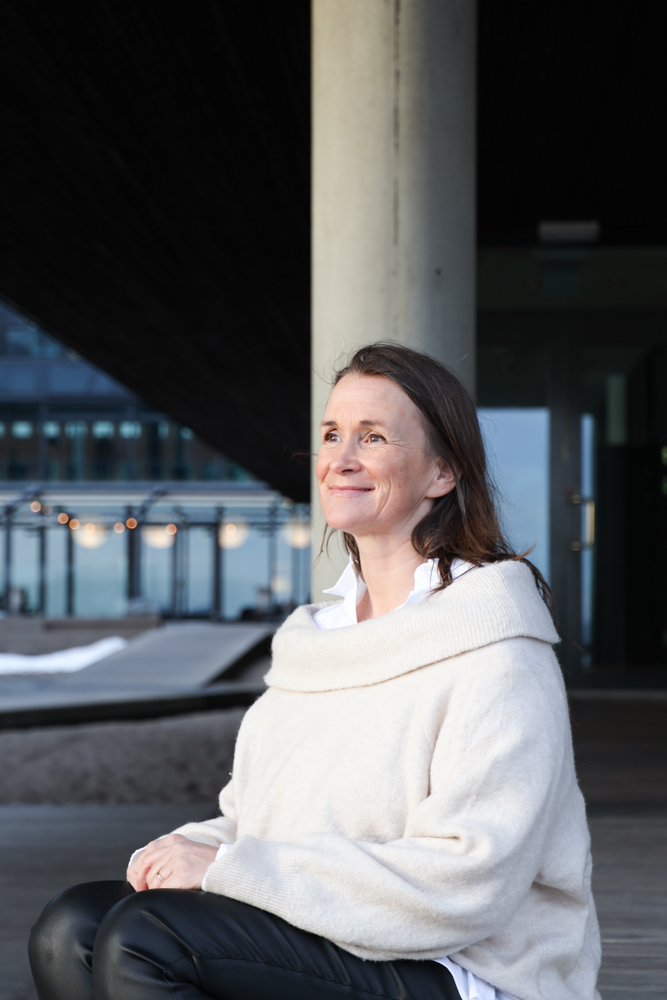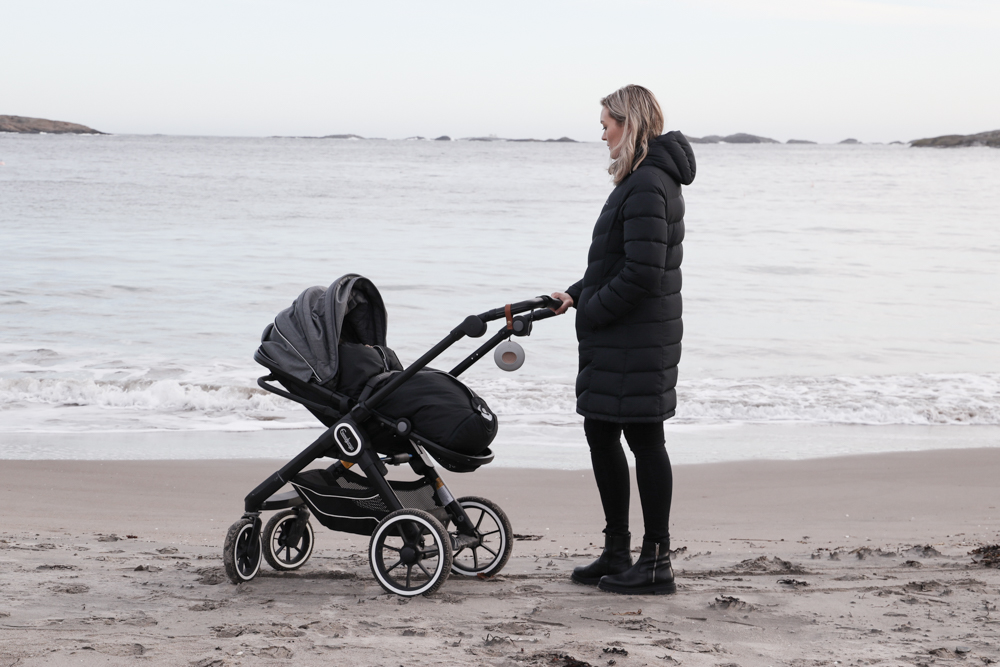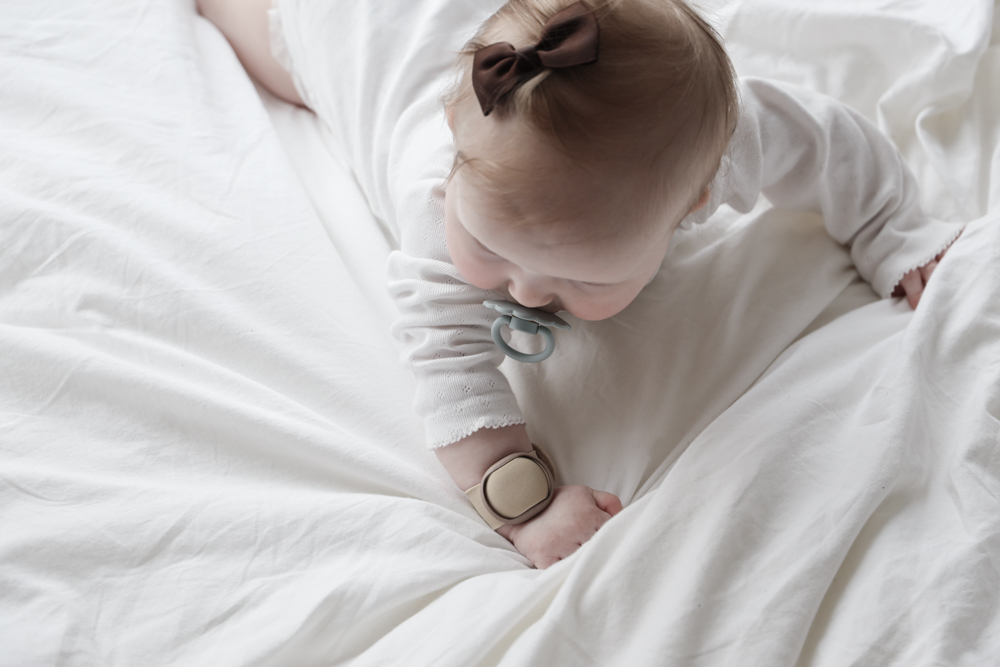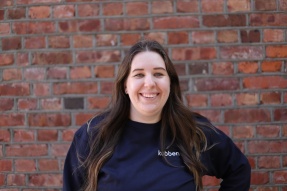This case was published on 25 April 2022.
Last modified on 08.February.2023.
It has been an extensive process with many ups and downs for entrepreneur Anita Fevang. After several years of testing and development, it is now not many months before the advanced baby call "BabySensor" is on the market.
This is a bracelet with a small sensor in it, which is placed on the baby's arm or foot. The wristband will send signals via Bluetooth to a mobile app you as a parent have on your mobile. If the measurements are outside the normal range, you will receive a notification. Here, as a parent, you can get alerts about the baby's body temperature, oxygen saturation and heart rate.
The idea came to the mother of four when she had her third child. She was surprised that it did not already exist on the market.
-There are smartphones and smartwatches, then I guess this should also exist, I thought, but then I started looking a bit and could not find anything that answered all my wishes, says Anita.
So then she simply had to make it herself. The first step was to find out if it was possible to make at all. Anita contacted the technology incubator Kobben, who helped her get started.
At Kobben, I was encouraged to work with this and was put in touch with companies that could help me with development and production. I thought maybe it would not work as I do not have a technical background, but there has been no obstacle, says the entrepreneur.
Networking and courage
Anita has a background from the child welfare service, so no technological background, but received good help from the environment in and around Kobben. And has always been good at contacting people who can make a positive contribution to the company, according to Henrik Bruvik Sæther, general manager of Kobben incubator.
-Anita is a very good network builder. She initially did not have much competence when it comes to the technical aspects of her product, but what she lacked in technological competence she made up for with motivation and the ability to link people and resources she needed, to the company. It may sound easy, and if you have a lot of money it is so far, but Anita did it with limited funds and with high precision. A true "hustler" as they say in the start-up world, says Henrik.

At Kobben, Anita and BabySensor were introduced to the company Nordigi, which was also part of the incubator. Among other things, they work with sensor technology and have been involved in developing the sensor units in the bracelet. Anita also came in early contact with USN (University of Southeast Norway), at the request of Kobben. Together with USN, Anita applied for funding from the Research Council and received early-phase funding for development.
-On Kobben we were introduced to the right people. With early-phase agents, we were able to investigate and confirm that there was a market and need for this product, and eventually we were able to make a prototype, says Anita.
The fact that Kobben is based at Forskningsparken, with a lab in the basement, was a big plus, says the entrepreneur.
-It was wonderful to have access to lab facilities in the basement so we could work on the product whenever we needed it.
Demanding to find capital
It did not take long from Anita contacting Kobben, until she invested everything and started working with BabySensor full time. The process has been extensive and at times very demanding, she admits.
-It has been absolutely cruel, she says with a smile on her face.
-It has taken a long time and it has been difficult to get capital. Had I shown it to be so difficult, I probably would not have started with this, Anita admits.
It took about a year and a half from idea to prototype was in place. Since then, all time has gone to testing and product development.
-We have worked a lot with the prototype and had it out with test families who have tested the product thoroughly, Anita explains.
She points out, among other things, that the corona pandemic has made it more difficult to obtain money.
- I have not had the network that has been necessary. And the corona has limited how to get in touch with suitable investors. I have been interested in finding smart money, something I learned from my time at Kobben. In other words, finding someone who can add something more to the company than just the financial, Anita explains.

And it has not been easy. Anita told Nettavisen that she has received no after no from investors. One thing in particular they have pointed out. BabySensor wants 10 percent of the company's profits to go to charities that work to stop violence against children. Several investors have been negative about this. But Anita has stood her ground.
Along the way, she has established a professional team, and Gøril Tennes-Krogh and Line Margrethe Bårnes Hamre have joined the company as co-founders.
Million aid from the EU
Now Anita and the gang in BabySensor have had a breakthrough. In February, they joined the EU program Eurostar and received approval for the application for NOK 17 million to further develop the sensor.
The project as a whole has received 17 million, where BabySensor receives seven million and partner companies in Europe have received 10 million. Together, they will create the world's most advanced baby call using AI technology. This will be a further development of the current product and will be available in a few years, as the development of the research progresses.
-It's absolutely amazing. These funds will come in handy in the further development of our product, she concludes.


